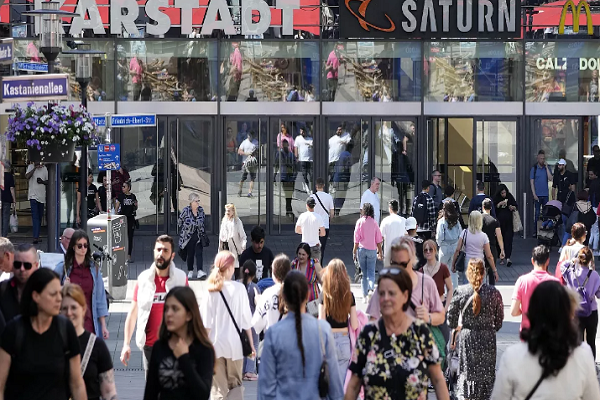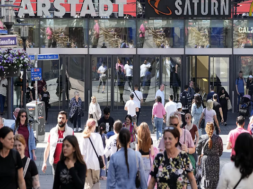
Inflation: Ahead of parliamentary polls, prices soar in Germany
New Delhi: As Germany braces for a general election to the Bundestag, the Lower House of Parliament, on February 23, after the recent collapse of its “traffic-light” coalition of social democrats, liberals, and greens, Europe’s biggest economy is struggling to cope with spiraling inflation.
German annual inflation rose more than the expected forecast in December 2024, the media reported.
Inflation jumped higher than expected with 2.8 percent in December as the official statistics released by the government office, Destatis, said. Germany’s parliament was dissolved dissolved the last month.
The harmonized consumer price index rose by 0.7 percent monthly, Destatis said.
This is the third consecutive month that Germany witnessed inflation of 2.8 percent, which is above the European Central Bank (ECB)’s estimates.
The rate of inflation for Germany in October was 2.4 percent, which remained unchanged in November and surged in December to 2.8 percent.
The core inflation, which includes energy prices, also inflated and inched higher to 3.1 percent in December from 3% in the previous month. Services inflation also nudged higher, coming in at 4.1 percent, compared to the 4 percent in November, according to the statistics office.
Germany recorded its highest inflation rates since its 1990 reunification, at 6.9 percent in 2022 and 5.9 percent in 2023, driven by the COVID-19 pandemic supply-chain disruptions and the shift away from Russian gas after the outbreak of the Russia-Ukraine conflict in February 2022. Despite falling energy costs, inflation has remained persistently high.
The ECB forecasts inflation will reach its 2 percent target this year, down from double-digit levels seen after the Russia-Ukraine conflict began.














